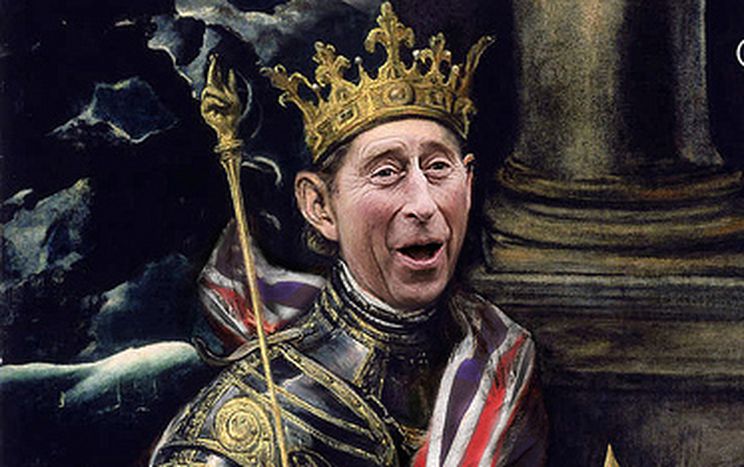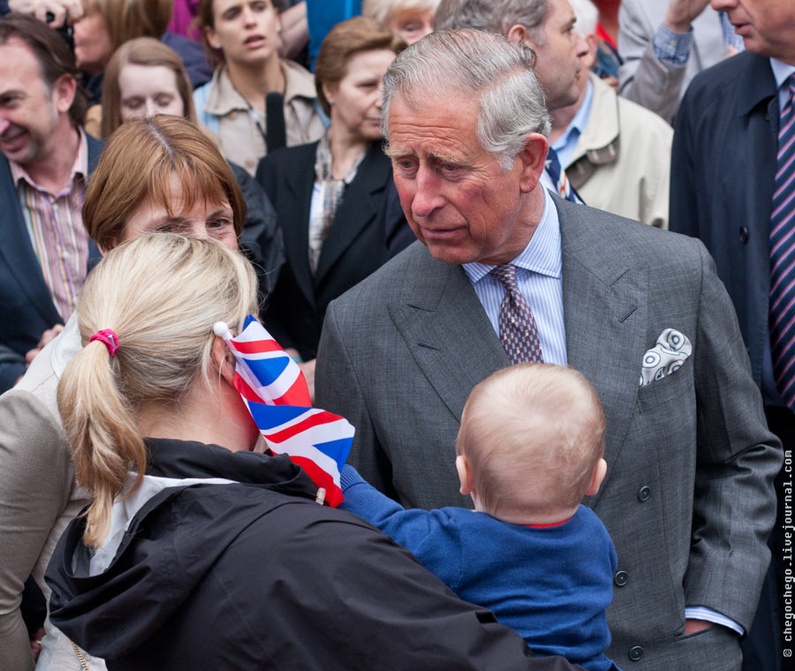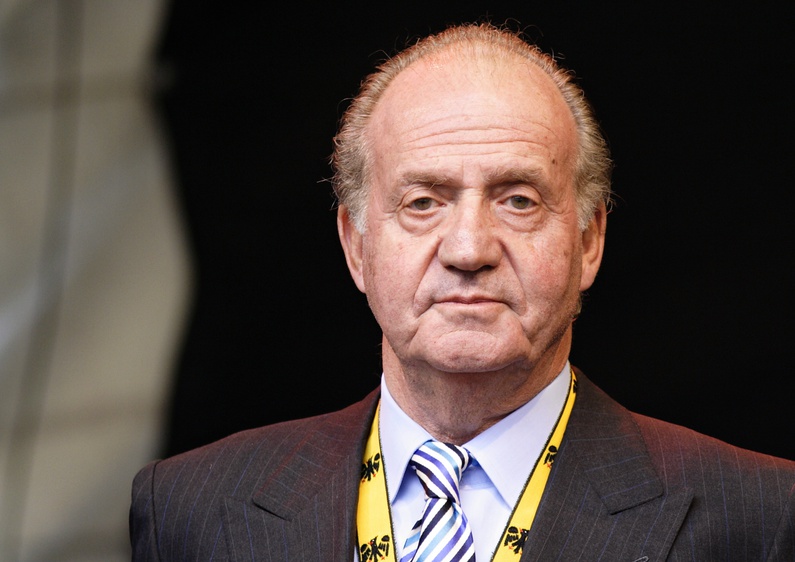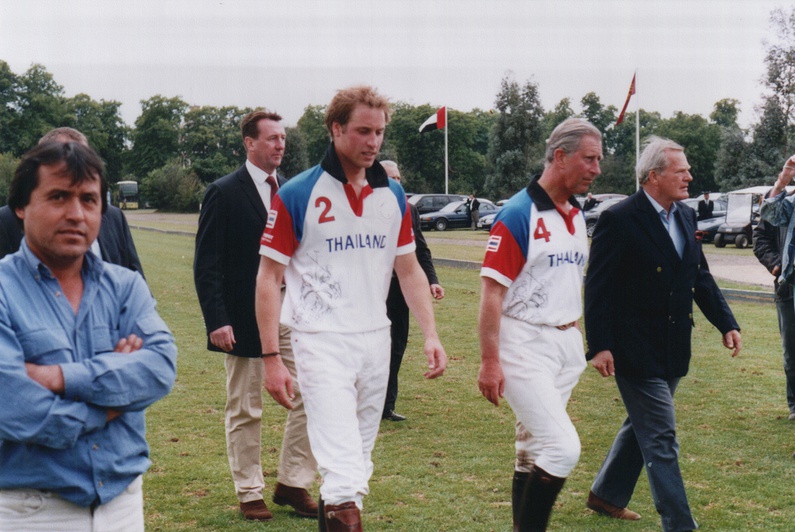
Royal Rumble: EU Monarchs behaving badly
Published on
In the EU, seven constitutional monarchies have survived waves of republicanism to remain at the head of their country’s establishment today. However, as many politicians have proven over recent years, those in charge don’t always follow the rules they set. A regal title doesn’t necessarily mean regal behaviour. Let’s take a look at a few monarchs behaving badly.
Despite certain positive examples such as King Juan Carlos’ instrumental role in the creation of democracy in Spain, monarchical meddling in politics is frowned upon nowadays. However, in the UK Prince Charles has frequently been accused of interfering, and an ongoing campaign by the Guardian to publish his letters to MPs won a recent victory after the original ban was declared unlawful. Almost unbelievably, their publication had been previously refused on the basis that they could cast doubt upon his political neutrality, and as such harm his ability to perform future duties as king.
 However, over the years it has been the royals personal rather than political exploits that have garnered negative press. Prince William and Charles recently did the very amicable deed of taking a stand against illegal poachers, and making a heartfelt appeal for the protection of animals around the world. Perhaps it might have felt more sincere had Prince William not been romping around Spain shooting wild boar only 24 hours earlier. What’s more interesting is the fact that the appeal actually applies directly to the King of Spain, whose repeated elephant hunting jaunts to Botswana lost him his role as honorary president of the Spanish WWF.
However, over the years it has been the royals personal rather than political exploits that have garnered negative press. Prince William and Charles recently did the very amicable deed of taking a stand against illegal poachers, and making a heartfelt appeal for the protection of animals around the world. Perhaps it might have felt more sincere had Prince William not been romping around Spain shooting wild boar only 24 hours earlier. What’s more interesting is the fact that the appeal actually applies directly to the King of Spain, whose repeated elephant hunting jaunts to Botswana lost him his role as honorary president of the Spanish WWF.
Robbing for the rich
In an ongoing corruption trial his daughter, Princess Christina, recently became the first member of the royal family to be questioned in court. Accusations are that her husband used a not-for-profit organisation of which he was president to rip off the regional governments of Valencia and the Balearic Islands for personal gain. It’s claimed the couple then used this money to pay for anything from utility bills to the remodelling of their home, on which they spent a total of €9 million. In November of last year it was seized as part of a civil bond to pay for their court fees.
 Although this corruption is particularly poignant given the background of Spain’s soaring debts and almost 30% unemployment, it’s also important to remember that their royal family is the cheapest of any European monarchies. Several years of cuts have left them with a budget of €7.78 million for 2014, making them comparatively impoverished against their UK counterparts, who can look forward to £37.9 million of the taxpayer’s money over the same period. Worse still, the Netherlands’ population is two thirds smaller than Spain’s but the Dutch King and Queen receive four times as much tax payer money.
Although this corruption is particularly poignant given the background of Spain’s soaring debts and almost 30% unemployment, it’s also important to remember that their royal family is the cheapest of any European monarchies. Several years of cuts have left them with a budget of €7.78 million for 2014, making them comparatively impoverished against their UK counterparts, who can look forward to £37.9 million of the taxpayer’s money over the same period. Worse still, the Netherlands’ population is two thirds smaller than Spain’s but the Dutch King and Queen receive four times as much tax payer money.
Even more striking is a recent parliamentary report that highlighted just how poor the British Royal Family are in the management of their finances. The report concluded that the Crown “needs to get a much firmer grip on how it plans to address its backlog of property maintenance.” It also said “there is scope for the Household to generate more income and reduce its costs further.” Hardly surprising given that only a smattering of Buckingham Palace’s 775 rooms are open for public visits, and even then for only two months of the year. What’s more, overspending last year led to the Palace dipping into its cash reserves, leaving them at the historical low of £1 million.
EU Agricultural Funds for Royals
Interestingly, the money that funds these regal lifestyles isn’t only coming from their own citizens. Here we’ll turn our gaze to the hulking EU wide fund of the Common Agricultural Policy, which takes up 40% of the EU’s entire budget. Aside from Spain, Britain is the country with the least equally distributed land in Europe, with 70% of it being held by only 0.28% of the population, and the average British household contributes £245 a year to the CAP.
In 2012, a freedom of information request from the New Statesman found large recipients of the scheme to include the Duke of Westminster, who in 2012 added £748,716 to his £7.4 billion wealth thanks to it. In the same year the Queen received £415,817 and the Duchy of Lancaster £314,811. On top of this, until a 2015 reform comes into place there is no necessity for these landowners to actually engage in any farming activity to receive benefits. It’s a simple matter of the more they own, the more they receive. Despite an EU Commission proposal to cap the total subsidy any large farmer can receive at €300,000, opposition from lobby groups meant it didn’t get into the final reform bill.
Evidently, none of the above makes for great press, and historically it tends to be the case that people need to perceive some kind of active wrongdoing on the part of their monarchs to achieve a sufficient desire to overthrow them. However, it seems indignation isn’t widespread enough to usher in any kind of republican revolution in the near future. In fact, the Queen’s recent Diamond Jubilee and the “royal baby” mania that gripped the world last year has led to some of the most favourable opinions ever towards the British Royal Family. Around two thirds believe the UK to be better off as a monarchy, and only 17% would see a republic as preferable. This is coupled with high confidence in the institution’s future longevity, with only 14% of Britons believing the monarchy will be abolished by 2070 (interestingly in the same YouGov survey 15% think we’ll have made contact with alien life by then).
Despite any wrongdoings and scandals, it’s still seems they’re behaving no worse than our elected representatives, with corruption, sexual abuse and misuse of public office having rocked many European parliaments over recent years. The fact we don’t get to publicly elect which monarchs’ pockets our money is funnelled into just makes it all the more distressing. Whilst we can’t vote them out in the short term, it certainly ought to make their positions more precarious in the long run.
The British Royal Family enjoy a day at a snake farm in 1947



